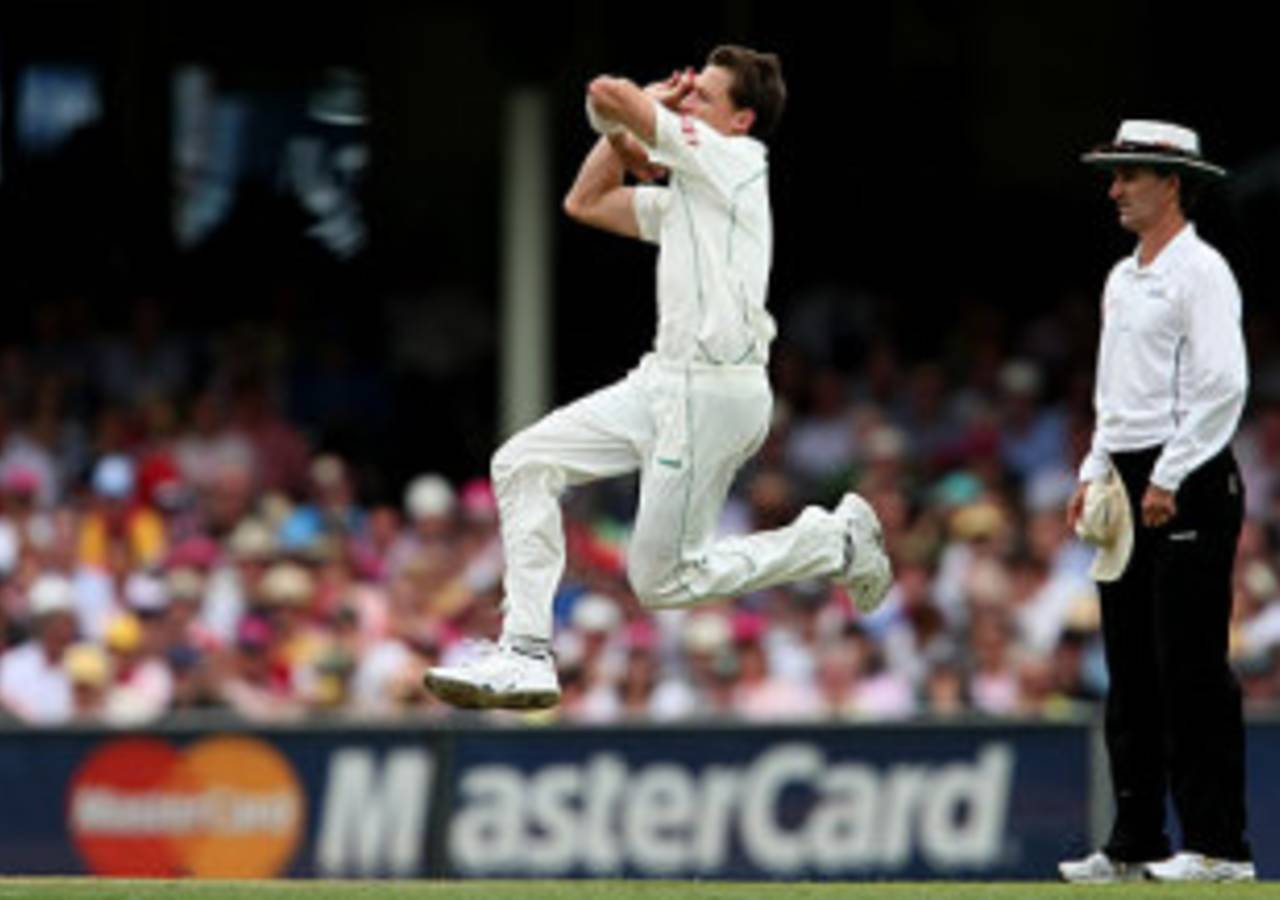Change is not cricket's enemy
It hasn't been a decade of doom, merely one of change
Harsha Bhogle
25-Dec-2009

Fast bowlers have been in desperately short supply, which is why batting averages have ballooned in recent times • PA Photos
Doomsday scripts are deluging us, as if churned out by a Hollywood production line. But as we know, while scripts can be scary, they need not necessarily be true. And so it must be stated up front: cricket is not in peril, it is merely undergoing change. Some people equate the two, but that happens every time a comfortable world order is disturbed.
Cricket as we knew it might change, but that has also happened with the way we communicate, with the way our families are structured and with the kind of medicines we take. Change doesn't always mean progress but the status quo isn't always the best result either. It is merely the most convenient.
The decade started with one of the greatest Test series of all time, when Australia came to India in 2001. At its mid-point we had one of the most riveting Ashes series ever. And the decade ended with some quality cricket between Australia and South Africa, Pakistan and New Zealand, another fine Ashes series, and a contentious Indian tour of Australia, where controversy shrouded the fact that it was still an excellent contest. Notice Australia is the common factor, and even if some of their cricketers believe that laws concerning behaviour should be a bit different for them, the fact is, they produce the best cricket on the planet.
Elsewhere, in the middle of the decade, cricket caught politicians napping and brought Indians and Pakistanis closer than ever before. But politics had the last laugh and that wonderful period between Kargil and Mumbai's 26/11 may never return. Cricket's greater enemy, certainly in the subcontinent, is not change but the hatred that evil minds spread and feed on. Don't forget, too, that cricket gave South Africa one of its most loved icons and allowed Makhaya Ntini to script one of sport's nicest feel-good stories.
Even if some of their cricketers believe that laws concerning behaviour should be a bit different for them, the fact is, Australia produce the best cricket on the planet
And so in spite of having been on death row for a while, Test cricket gave us many happy moments this decade. And given its resilience it would be fair to expect a few more in the decade ahead. The key question, though, will be whether or not youngsters either want to play it or look upon it as the highest form of the game. Those that lit up this decade, the Warnes and McGraths and Pontings and Tendulkars and Dravids and Muralis, grew up dreaming of playing Test matches. Teenagers today may not feel the same way, and by 2015 the Twenty20 generation will be playing international cricket. That will present an interesting challenge.
Already we are seeing fewer and fewer cricketers wanting to bowl quick. It is the best way to sneak into a world XI of Test cricketers at the moment. Shane Bond has quit, Shoaib Akhtar is a memory, Dale Steyn turns up far too infrequently, Brett Lee looks like he is done, Fidel Edwards is occasionally sighted, Kemar Roach is too young for an assessment, and Ishant Sharma is as confused as young men his age tend to be. That explains the number of 50-plus batting averages in recent times and why it has been a batting decade.
The good old one-day international has been knocked around a bit too, but viewership figures and attendances seem to tell a story that's a bit different to that which some columnists have been propagating. My suspicion is, as I argued some time back, that it is not the ODI that is in danger but the world contest played in front of neutral audiences. There is so much cricket that viewers must prioritise, and so home games are doing well while others are being ignored. If that is what market research is telling us, then we need to tailor our products accordingly. The 2011 World Cup is consequently going to be a key event in shaping the future of cricket contests and one that the ICC must watch very closely, since it will be impacted the most.
The end of the decade was lit up by the IPL and Twenty20, by the arrival of the brash young kid. To be honest, I am not worried by that since most non-conformists are labelled brash anyway. And it is the non-conformists who challenge the world, not those who seek satisfaction in the status quo. It has given the consumer what he or she likes and has given many more players the opportunity to earn a living from the game. We'll wait and see if it becomes a monster or a saviour.
And so it has not been a decade of doom, merely one of change.
Harsha Bhogle is a commentator, television presenter and writer